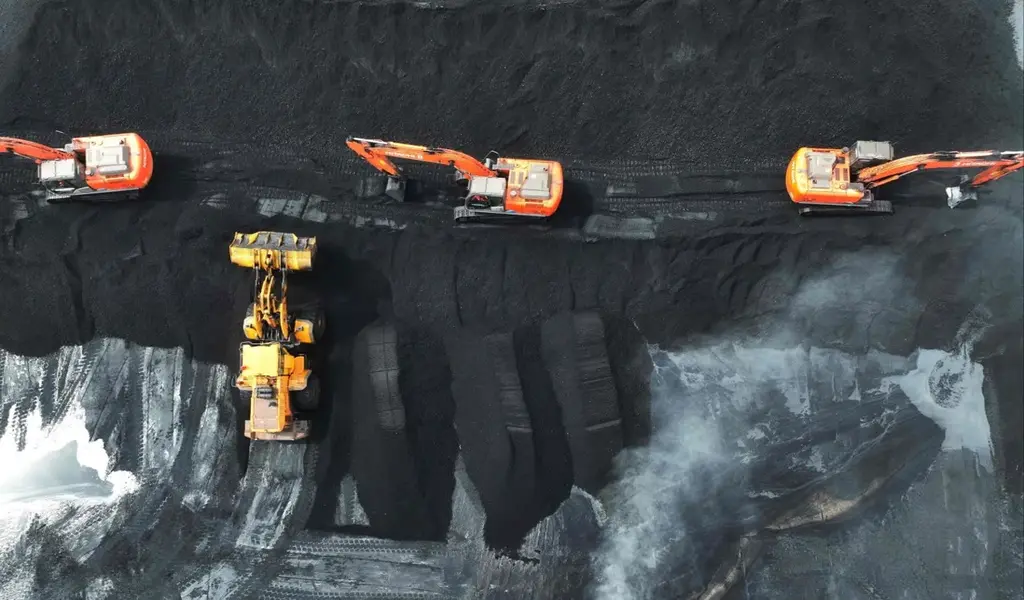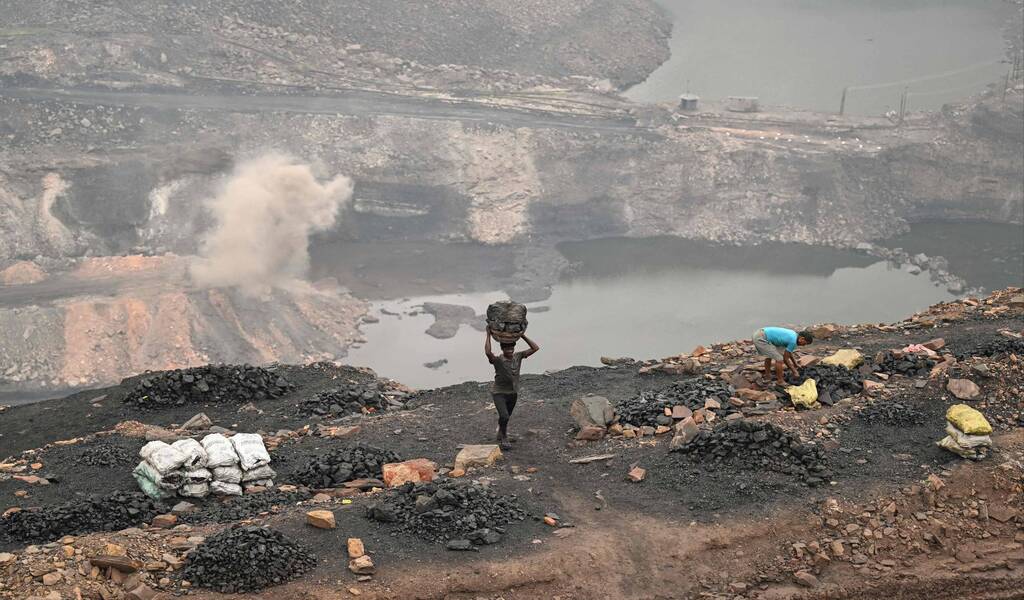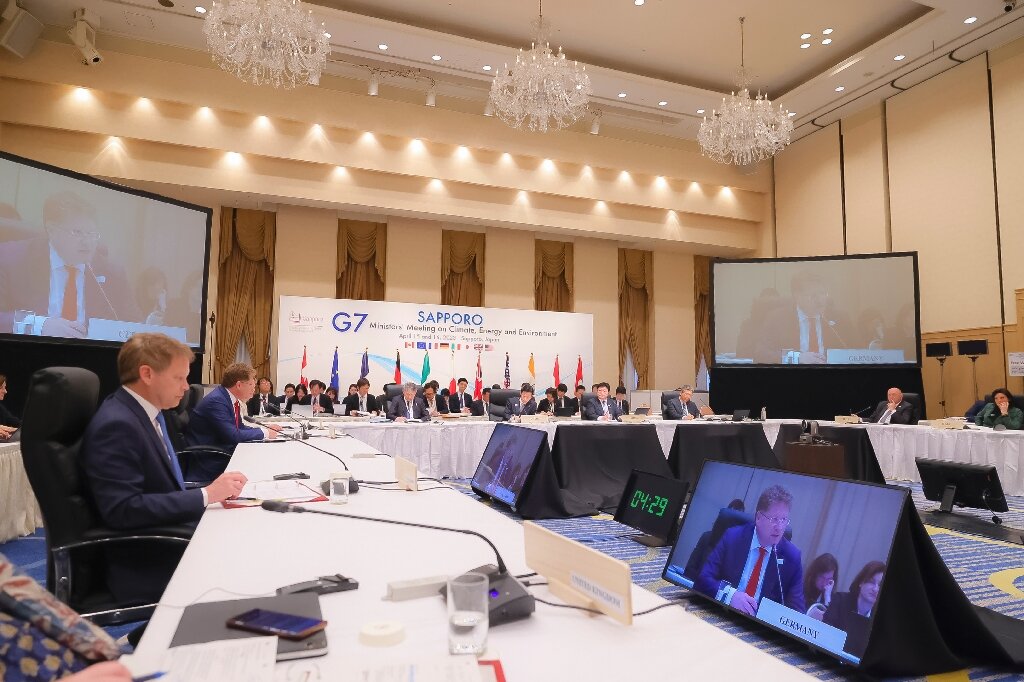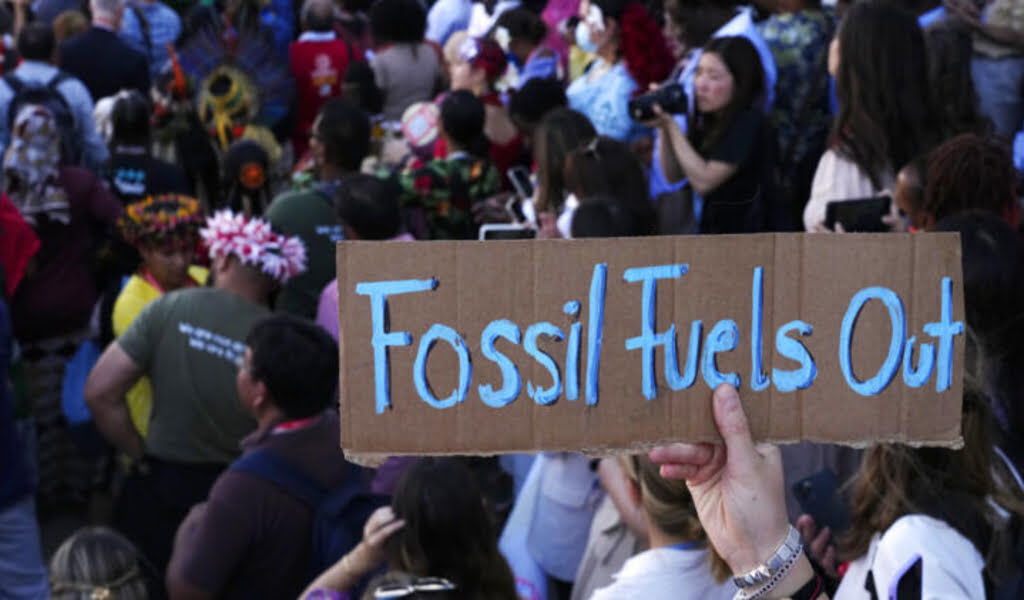News
G20 Energy Ministers’ Meeting In India Fails To Agree On Fossil Fuel Phase-Down Roadmap

(CTN NEWS) – The convergence of energy ministers from the esteemed Group of 20 took place in the vibrant land of India on a significant Saturday.
Much was at stake as they sought to forge a unified path toward the gradual reduction of fossil fuel consumption in the world’s energy amalgamation. Alas, a clear roadmap remained elusive as the sun set on their discussions.
Notably absent from the final statement was any mention of coal – a dominant force behind the escalating specter of global warming.
Balancing Act: The Complexities of Fossil Fuels and Renewable Energy Goals at G20 Summit
The intricate balance between its significance as a vital energy source for numerous developing economies, including India, the world’s most populous nation, and China, the globe’s second-largest economy, seemed to cloud the path to consensus.
Within the realm of ambitious COP goals lay the desire to triple the world’s renewable capacity and double the efficiency of energy usage by the year 2030.
Yet, the spirited campaigners who held these aspirations dear found themselves dismayed by the lack of accord reached on Goan soil.
In a juxtaposition of events, the G7 leaders had previously convened in Hiroshima and pledged to hasten the phase-out of unabated fossil fuels. Yet, in India, the currents of agreement seemed less swift.
Amidst the backdrop of rising global temperatures, nature seemed to register her discontent with record highs, unleashing torrents of floods, fierce storms, and scorching heatwaves.
The meeting’s outcome left many questions lingering, veiled in the complexities of energy policy and the delicate dance between economic growth and environmental stewardship.
The tale of this gathering serves as a testament to the intricate challenges faced when forging a sustainable future for the planet we call home.
India Reveals Stalemate at G20 Meeting Over Fossil Fuel Reduction Strategies Amid Divergent Perspectives
In the aftermath of the G20 meeting, India, serving as the president, shed light on the reasons behind the prevailing stalemate.
According to their account, certain member nations laid emphasis on the significance of pursuing a gradual reduction of unabated fossil fuels, taking into account the unique circumstances each country faces.
On the contrary, there were dissenting voices among the members who held a divergent perspective. They believed that the adoption of abatement and removal technologies would adequately address the concerns related to fossil fuel usage.
Alden Meyer, a respected senior associate at the independent climate think tank E3G, expressed his strong disapproval of the meeting’s outcome, reflecting the disappointment and concern shared by many who had hoped for more decisive action.
This outcome highlights the complexities and differing viewpoints surrounding the critical issue of addressing fossil fuel consumption and its impact on the environment.
The clash of ideas underscores the challenge of finding common ground among nations with varied circumstances and priorities.
As the world grapples with the urgency of climate change, forging a unified approach remains a formidable task.
G20 Energy Ministers’ Response to Climate Crisis Deemed Insufficient, Sparking Calls for Urgent Action
Amidst the backdrop of escalating temperature records being shattered daily across the globe and the ever-worsening consequences of unbridled climate change, a resounding call to action from the G20 energy ministers was deemed imperative.
However, what echoed forth was, in the words of one commentator, “very weak tea indeed.”
In response to the pressing urgency of the situation, a coalition comprising pivotal European Union economies – such as Germany and France – joined forces with some of the most vulnerable island nations.
Together, they issued a fervent plea to the G20, urging them to expedite their plans to achieve net zero emissions and embark on the phased withdrawal from fossil fuel reliance.
The message was stark and unwavering: “Humankind cannot afford to delay.”
The gravity of the situation could not be overstated, and the world awaited a unified and resolute stand from the G20 energy ministers. Instead, the response was perceived as tepid and inadequate in the face of the mounting climate crisis.

TOPSHOT – A coal picker carries coal at an open cast mining site on the outskirts of Dhanbad on July 6, 2023. (Photo by Money SHARMA / AFP)
Urgent Call for Climate Action: Coalition Seeks Drastic Emission Reductions Amid Global Divide
As temperatures continued to soar, and the consequences of climate change reverberated with increasing intensity, the call for meaningful action became more urgent than ever.
The coalition’s plea sought to remind the world that every moment counts in our collective endeavor to secure a sustainable and inhabitable future for generations to come.
The urgent call from the coalition encompassed specific targets to tackle the pressing climate crisis.
They urged for greenhouse gas emissions to peak no later than 2025 and be reduced by a substantial 43 percent by 2030, measured against the levels of 2019.
These objectives aligned with recent updates provided by UN climate experts, underlining their critical importance.
However, a divide emerged among the developing economies, who argued that the developed West bore a historical responsibility as legacy polluters and major contributors to greenhouse emissions.
They contended that the burden of financial responsibility should fall more heavily on the industrialized nations.
Developing countries emphasized that the transition towards cleaner energy required vast capital investments and access to new technologies.
The fear of abandoning polluting fuels without affordable alternatives echoed loudly, as they feared it would perpetuate poverty for their sizable populations.
India’s G20 Climate Pledge: The Challenge of Achieving Net Zero Emissions by 2070
India, as the host nation for the G20 summit, pledged its commitment to achieving net zero emissions but projected a timeline of 2070 – two decades later than the earlier commitments made by several other countries.
A report compiled for its G20 presidency estimated an annual cost of a staggering US$4 trillion for the energy transition.
In this context, the report emphasized the vital role of low-cost financing for developing nations and the transfer of crucial technologies – a demand strongly voiced by New Delhi.
Complicating matters further, certain major oil-producing countries resisted a swift transition away from fossil fuels, citing concerns about the potential impact on their economies.
Ed King, a representative from the climate-oriented communications firm GSCC, pointed fingers at Russia and Saudi Arabia, holding them responsible for the lack of substantial progress at the G20 meeting.
Their resistance to swift action hindered the forging of a more united and decisive response to the pressing climate crisis.
As the world faced the dire consequences of climate change, the divergence of perspectives among the nations gathered at the G20 summit demonstrated the complexity of achieving a global consensus on climate action.
Challenges in Climate Action: The Role of Fossil Fuels and Emission-Reducing Technologies
In a tweet, Ed King highlighted how certain parties had obstructed attempts to secure an agreement on significantly increasing the adoption of clean energy and implementing ambitious reductions in fossil fuel usage.
Efforts to reach a consensus on these crucial matters were met with resistance from these actors.
Sultan Al Jaber, the chief executive of the Abu Dhabi National Oil Company and the future head of the COP28 talks, conveyed his perspective on the role of fossil fuels in the evolving energy landscape.
He acknowledged the importance of employing potentially contentious technologies to “abate” or neutralize emissions, suggesting that fossil fuels may continue to play a role in the foreseeable future.
While recognizing the inevitability and essential nature of a phase-down in fossil fuel consumption, he refrained from specifying a precise timeline for this transition.
As discussions unfold around the complex and polarizing issue of climate action, differing opinions and positions among key stakeholders continue to shape the path forward.
The debate on the role of fossil fuels, the deployment of emission-reducing technologies, and the necessity of a comprehensive phase-down underscores the intricate challenges faced in charting a sustainable and equitable energy future.
RELATED CTN NEWS:
Thailand Dominates The Southeast Asian (SEA) BEV Market As BEV Sales Soar
Biden’s Ambitious Re-election Campaign: A $2 Billion Strategy In Collaboration With The DNC
































